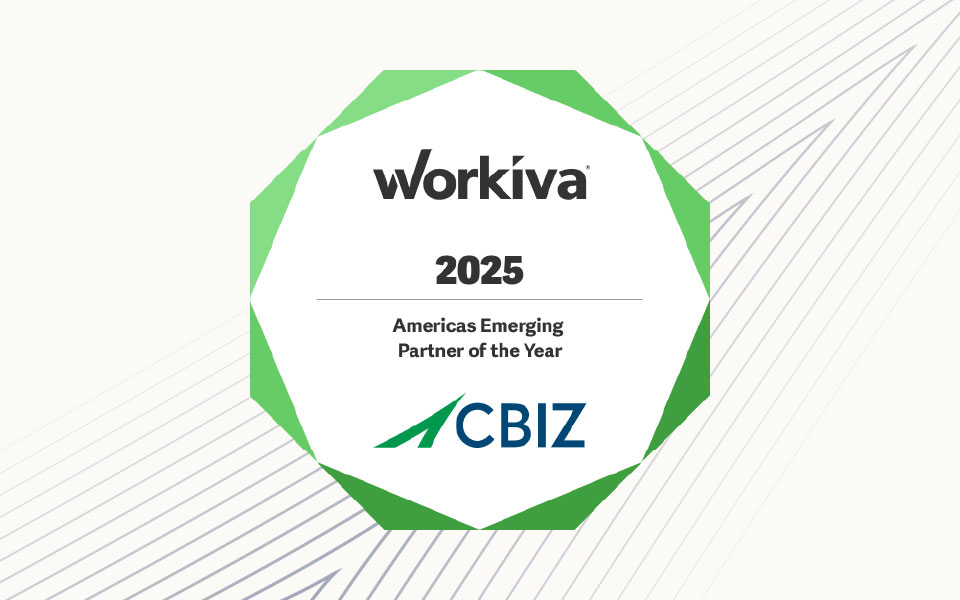At a Glance
- Despite current headwinds, venture funding and exit opportunities are out there for emerging companies — particularly for AI and technology startups.
- To demonstrate value in a competitive market, founders should adopt robust financial frameworks, including optimized cost structures and the right go-to-market pricing strategy.
- The right advisors can help build out these frameworks, ensuring quality financial reporting, implementing scalable accounting systems, and evaluating customer pricing models that resonate in today’s market.
With businesses across industries now viewing artificial intelligence (AI) and technology adoption as an operational imperative — and as competition for startup funding and exits pick up in kind — founders will benefit significantly from adopting financial frameworks to attract early-stage capital and best position themselves for a sale.
Despite broader headwinds, investment and M&A opportunities for emerging companies are there for the taking. Three hundred M&A deals involving VC-backed US-based startups were announced in Q1 of this year, up 40% from Q1 2024. Understandably, the majority of these exits involve AI and technology companies: globally, AI-focused M&A deals surged by 33% year-over-year in Q1, while enterprise SaaS startups inked 210 M&A transactions, up from 165 during this same period in 2024.
At the same time, innovative tech startups are experiencing larger funding rounds from strategic investors and VC firms in earlier stages. For instance, at three months, Safe Superintelligence raised $1 billion in 2024 to help develop safe AI systems. Prequin data shows that quantum computing startups are increasingly attracting early-stage financing, with VCs having invested at least $1 billion in such companies as of June 2025.
While later-stage AI ventures are also drawing major funding — take Anthropic’s $3.5 billion Series E round in March and the Meta Platforms investment in June that boosted Scale AI to a more than $29 billion valuation — not all tech startups are created equal. Others are struggling as high interest rates, economic uncertainty, and heightened scrutiny of profitability metrics keep investors and buyers cautious. This state-of-play means that, whether founders are seeking funding or eyeing a potential exit, implementing financial rigor early on is absolutely critical.
Strategies to Showcase Value in a Competitive Market
In order to demonstrate value, founders need to understand how cost structures, go-to-market strategies, and customer pricing impact attractiveness and shape their stories — potentially leading to greater valuations. Here are a few best practices to keep top-of-mind:
Establish sound financial, operational and compliance frameworks. Historically, founders lost track of the importance of structuring their organizations for maximum appeal to potential buyers or investors, given the full focus and effort on building innovative products. CFO-driven operational excellence — leveraging streamlined financial systems, optimized infrastructure, and careful cost management — ensures scalability and cost-efficiency that can be used to bolster interest from potential buyers and investors in today’s highly competitive market. Understanding financial information and being able to properly present it is important not only for future funding rounds and smooth acquisition diligence but also for scaling into a potential future IPO.
Optimizing cost structures. Given the rapid pace of technological advancement, founders often face uncertainty around the optimal allocation of resources. Maintaining a well-defined and adaptive cost structure is therefore crucial. AI companies, for instance, frequently underestimate expenses related to computing infrastructure, cloud processing, data management, and model retraining. Early-stage companies need clear financial forecasts incorporating GPU usage, data pipeline scaling, and potential regulatory compliance costs to avoid surprises during acquisition diligence.
Implement the right go-to-market pricing strategy. AI innovations are disrupting traditional subscription-based SaaS pricing models, with consumption-based pricing emerging as an option that resonates with customers and better reflects the economics of these transactions. Though usage-based models may leave founders with less predictable revenue streams, they can offer significant upside by driving deeper user engagement. CFOs and advisors that are adept at structuring these types of agreements enable tech startups to clearly demonstrate growth and will in turn drive higher valuations.
Build Smart, Exit Strong
Ultimately, early-stage tech companies that proactively adopt scalable financial practices and flexible exit strategies are best positioned to emerge as winners as the pace of tech investment and M&A accelerates in the months to come. In particular, founders must embrace a CFO mindset early — prioritizing well-defined cost structures, strategic pricing models, and clearly defined metrics — to position their companies for maximum valuation and seamless exits.
CBIZ can help early-stage companies be ready when investors and buyers come knocking on their doors. Our team brings extensive expertise in building robust financial infrastructures, ensuring the quality of financial reporting being presented, implementing scalable accounting systems, and evaluating customer pricing models that resonate with customers in an evolving market. By partnering closely with leadership teams from the earliest stages, we position companies to reach the appropriate maturity levels during all stages in the funding lifecycle and ensure readiness for successful exits through strategic acquisitions or IPOs.
© Copyright CBIZ, Inc. All rights reserved. Use of the material contained herein without the express written consent of the firms is prohibited by law. This publication is distributed with the understanding that CBIZ is not rendering legal, accounting or other professional advice. The reader is advised to contact a tax professional prior to taking any action based upon this information. CBIZ assumes no liability whatsoever in connection with the use of this information and assumes no obligation to inform the reader of any changes in tax laws or other factors that could affect the information contained herein. Material contained in this publication is informational and promotional in nature and not intended to be specific financial, tax or consulting advice. Readers are advised to seek professional consultation regarding circumstances affecting their organization.
“CBIZ” is the brand name under which CBIZ CPAs P.C. and CBIZ, Inc. and its subsidiaries, including CBIZ Advisors, LLC, provide professional services. CBIZ CPAs P.C. and CBIZ, Inc. (and its subsidiaries) practice as an alternative practice structure in accordance with the AICPA Code of Professional Conduct and applicable law, regulations, and professional standards. CBIZ CPAs P.C. is a licensed independent CPA firm that provides attest services to its clients. CBIZ, Inc. and its subsidiary entities provide tax, advisory, and consulting services to their clients. CBIZ, Inc. and its subsidiary entities are not licensed CPA firms and, therefore, cannot provide attest services.















